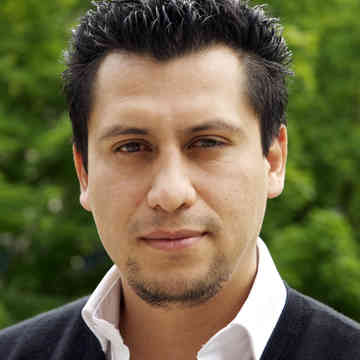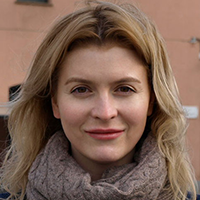 Holguer Xavier Jara Tamayo | Chair
Holguer Xavier Jara Tamayo | Chair
H. Xavier Jara is Research Officer at the International Inequalities Institute at the London School of Economics. He holds a PhD in Economics from the University of Leuven, Belgium. He works in the fields of public and development economics and has extensive experience in the study of distributional analysis, microsimulation of tax-benefit policies and well-being measurement.
 Rodrigo Oliveira | Presenter
Rodrigo Oliveira | Presenter
The mitigating role of tax and benefit rescue packages for poverty and inequality in Africa amid the COVID-19 pandemic
(co-authors: Jesse Lastunen, Pia Rattenhuber, Kwabena Adu-Ababio, Katrin Gasior, H. Xavier Jara, Maria Jouste, David McLennan, Enrico Nichelatti, Jukka Pirttilä, Matteo Richiardi, and Gemma Wright)
Rodrigo Oliveira is a Research Associate at UNU-WIDER, and my research interests are Development Economics and Public Policies, focusing on Education, Labor Market, Poverty, and Inequality. His leading research focuses on the impact of education on a wide range of outcomes and uses different econometric methods. During my Ph.D., he studied how education and labor market structure explain the evolution of Brazil's regional inequality between 1970 and 2010. After the Ph.D., his research has focused on the impact of vocational training and affirmative action policies. Recently he started projects involving tax-and-benefit microsimulation methods in selected African countries and the long-term impacts of socio-economic shocks. He has five years of experience leading research teams in Brazilian Universities. One year of experience leading a research team in the Brazilian private sector. Besides, he has experience as a visiting researcher at CIDACS-Fiocruz and Clear-FGV. Currently, he coordinates research and technical assistance activities in Mozambique and Tanzania in collaboration with UNU-WIDER colleagues.
David Rodriguez | Presenter
Tax-benefit systems and the gender gap in income in Latin America
David Rodriguez is PhD in Economics from the University of Essex, UK. Currently Lecturer and Researcher at Universidad Externado de Colombia. His research interests include taxes and benefits modelling and labour economics.
 Daria Popova | Presenter
Daria Popova | Presenter
The distributional impact of taxes and social transfers in low-income countries: are budget neutral reforms viable?
Dr Daria Popova is a research fellow at the Institute for Social and Economic Research (ISER), University of Essex and a deputy director at the Centre for Microsimulation and Policy Analysis based at ISER. Her research interests center on socio-economic inequality and the role of public policies and institutions in shaping it. Her papers on these topics have been published in Journal of Social Policy, Journal of European Social Policy, Social Science Research, among others.
 Join the network
Join the network Holguer Xavier Jara Tamayo | Chair
Holguer Xavier Jara Tamayo | Chair Rodrigo Oliveira | Presenter
Rodrigo Oliveira | Presenter Daria Popova | Presenter
Daria Popova | Presenter